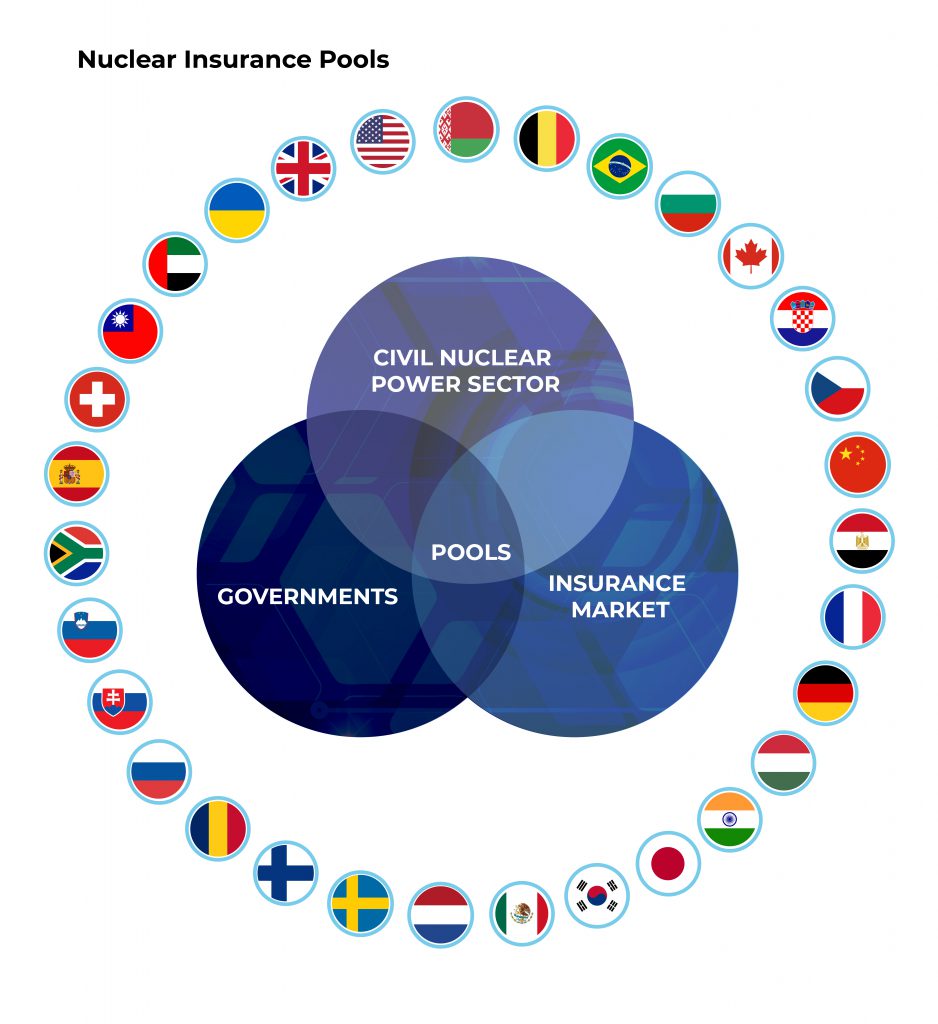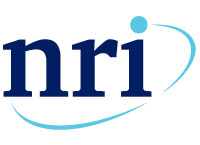How does Nuclear Insurance work?
To best address the unique insurance needs of the civil nuclear industry, NRI’s model centres on the ‘pooling’, or grouping, of capacity by many insurers to allow a joint underwriting of risks.
Nuclear pools, established in the mid-1950s, were formed to insure civil nuclear risks within their national market, and to provide interpool reinsurance (reciprocation). Reciprocation is arranged on a ‘net’ of Treaty or Facultative reinsurance basis given that nuclear is a general exclusion within the insurance market. Net capacity is pooled from insurers and reinsurers who are willing to expose their balance sheet to civil nuclear risks.
Pools were established in the spirit of a bilateral relationship between the newly forming sector, governments and the insurance market.
A pool is a mechanism whereby a number of insurers, through association, jointly underwrite a technically challenging type of risk. Pools are typically formed when a risk is high in severity and low in frequency and other examples include terrorism and natural catastrophe. Pools are further categorised by insufficient capacity being attracted to a class of business (from individual insurance companies), due to risk appetite, technical underwriting challenges and costs of doing business.
A pool in Country A insures a civil nuclear risk domestically and then via reciprocation shares that risk with other nuclear insurance pools B and C etc. within the international pooling system thereby spreading and diversifying the potentially catastrophic risk.

As one of the most internationally diversified pools in the world, NRI writes risks in all nuclear countries, with the exception of countries where sanctions apply.
Nuclear Pools
Many international nuclear pools of insurance have been modelled along similar lines to NRI structure.
Today, over 300 insurance companies in 31 countries pool their net capacity in this way, which is then used to insure domestic civil nuclear risks and to provide interpool reinsurance (reciprocation).

In the absence of nuclear pools, the finite insurance capacity that exists could not be accessed efficiently or at all. Consequently, nuclear pools provide an essential service to civil nuclear operators and are an enabler to the operators’ ‘social licence’ by satisfying their complex insurance needs.
- American Nuclear Insurance (ANI)
- Assuratome
- Belgian Nuclear Insurance Pool
- Bulgarian National Nuclear Insurance Pool
- China Nuclear Insurance Pool
- Consórcio Brasileiro de Riscos Nucleares
- Croatian Nuclear Insurance Pool
- Czech Nuclear Insurance Pool
- Deutsche Kernreaktor Versicherungsgemeinschaft
- Espanuclear
- Hungarian Atomic Pool
- Japan Atomic Energy Insurance Pool
- Korea Atomic Energy Insurance Pool
- Nederlandse Pool
- Nordic Nuclear Insurers
- Nuclear Energy Insurance Pool of the Republic of China
- Nuclear Insurance Association of Canada
- Mexican Atomic Pool
- Romania Pool for the Insurance of Atomic Risks
- Russian Association of Nuclear Insurers
- Slovak Nuclear Insurance Pool
- South African Pool for the Insurance of Nuclear Risks
- Swiss Pool for the Insurance of Nuclear Risks
- Ukrainian Nuclear Insurance Pool
- United Arab Emirates Nuclear Insurance Pool (UNIP)
